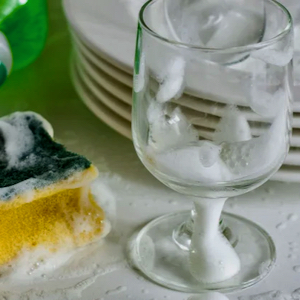I was hand-washing some dishes the other day when I began to wonder, Why? Why am I washing dishes by hand when we have a perfectly functional dishwashing machine? We already own the dishwasher plus the soap needed to run it, the machine is conveniently located directly next to the sink where I hand wash the dishes, and — most importantly — the machine is significantly more efficient at conserving water. [1]Using the machine should also save me time — time that I could theoretically use to watch the recent Republican debate, although word on the street is that the debate has been recorded and … Continue reading
Conserving water is important to me, both as a general priority and in this specific moment, which finds me looking at a sky that is a pulpy gray slush from all the smoke in it. That smoke come from the wildfires that have been steadily burning their way across significant chunks of the US and Canada this summer.
So why didn’t I use the machine? Why don’t I use the machine? (While I’d love to affirm some progress, the writing of this essay has in no way impacted my dishwashing habits.)
The answer is as simple as it is stupid: because I have the feeling that my hand washing is somehow exempt from the whole water efficiency thing.
I have absolutely no reasons whatsoever to back that up. It’s just this thing I think.
I warned you: this is stupid. It’s stupid to think that my hand washing somehow undermines the scientifically supported superiority of the machine. To be clear — my technique is solid: my shit sparkles — still, I’m not that good.
This belief is stupid, yet its stupidity doesn’t impact my believing it, nor does it prevent from from acting upon it.
This could be concerning. But that concern would be predicated upon the belief that we should be forming our lives around reality. If the sky is smokey because of wildfires, we should call it gray and not blue. If that were true, then my disagreement with reality about dishwashing should cause dissonance within me, but let me confess: it doesn’t.
This points to one very curious thing about reality: you don’t have to believe in it for it to remain reality; equally, the accuracy of your beliefs about reality is often unrelated to your abilities to impact it. As an example of the latter point, let’s look at the January 6th riots. Some of those people — from the Shaman to the former President — rejected and still continue to reject reality. And that rejection has led — and looks likely to continue to lead — to some terrible and hurtful outcomes.
I happen to think that Joe Biden won the election (god help us…), and as such, those January 6th “patriots” are a bunch of treasonous clowns. But it’s worth remembering that I’m saying that as someone who doesn’t believe reality applies to him when it comes to washing dishes. While the scale is very different, the process looks terribly familiar.
That got me thinking (what with all the hand washing of dishes I had plenty of time to think): Is my dishwashing thing a one-off or is this a larger theme? Do I honestly think reality doesn’t apply to me only within this context, or is this a more expansive approach to my place within the world?
I hereby offer a very short list of concrete things that — for reasons I absolutely cannot explain, which is equivalent to saying: for no reasons at all — I don’t think apply to me: hot slices of pizza straight from the oven will not burn my tongue; sitting on my ass for hours will not impact my body’s physical performance; I am immune from wasting time on my phone; consuming alcohol will not impact my decision making. I’ll spare you further details, but trust me: the list goes on. (I also have a list of non-real things that I stubbornly insist are real, but I’ll save that for another day.)
Attentive readers that you are, you’ll likely notice that I left off one big subject: Death, which is where this story — like most stories — is headed.
I know that everything dies.[2]A persnickety logician could say: you don’t know that everything dies. This is factually true, for what I’m calling knowing is simply an acknowledgement of a high probability. To my mind, all … Continue reading
It’s true that I’m going to die.
While I don’t like that truth, I don’t dispute it.
I also don’t really believe it.
I want to be clear: I don’t have a replacement theory. I don’t believe some magical outcome will spare me. I don’t think aliens will take me up into the skies, I don’t believe technology will solve this, and I don’t believe God will return and save me. I just don’t think I’m going to die.
Like the inefficiency of hand washing dishes or the results of the 2020 election, this belief is patently absurd; but as most of the above has likely demonstrated, I’m not about to let that limit me.
References
| ↑1 | Using the machine should also save me time — time that I could theoretically use to watch the recent Republican debate, although word on the street is that the debate has been recorded and will be played on a loop in the waiting room of Hell. |
|---|---|
| ↑2 | A persnickety logician could say: you don’t know that everything dies. This is factually true, for what I’m calling knowing is simply an acknowledgement of a high probability. To my mind, all this proves is that some things can be true and utterly pointless. |
